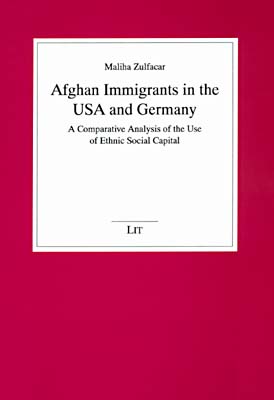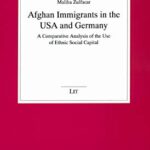Beschreibung
After the breakdown of all hopes in a peaceful settlement between the
Afghan war parties many of the refugees who had just returned to their
country saw themselves forced to emigrate again. But while the first waves
of emigrants during the Soviet occupation had been welcomed and had
abtained in West-Germany political asylum, the attitudes in many countries
changed drastically to indifference and even to expulsion. This
indifference in face of the largest national exodus after World War II
must be classified as a scandal.
Maliha Zulfacar has engaged her studies to elucidate the social and
cultural dimensions of this large diaspora in applying Bourdieu’s
categories of social and cultural “capital” as well as that of
“habitus” to the different ways of adaptation to social and cultural
conditions in two important countries: the USA and (West-)Germany.
In spite of difficult economic conditions afghans in the USA can maintain
their kinship links and use them to reinforce their traditional habitus
and to improve their material conditions by patterns of solidarity.
In Germany, on the other hand, the administrative rigidity which limits
economic activities and regional mobility, in spite of relatively high
public financial inputs the results are negative: The social condition of
the Afghans is marked by dependence and exclusion.
Dr. Zulfacar’s study suggests urgent modifications of the German policy
towards refugees in general. Not withstanding the high theory level of her
sociological analysis, its pragmatic aspect is considerable. The empirical
results of Zulfacar’s investigation reveal the high “achievement
motivation” of the refugees who in their overwhelming majority emigrated
just to save their lives.
Maliha Zulfacar’s study constitutes a moving appeal to the humanitarian
responsibility of the decision makers in industrial societies.


